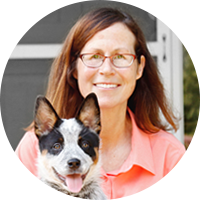August 13, 2024
When you have 2 dogs is it possible that neither of them is dominant over the other one?
Full Question:
I have watched the course on how to establish pack structure and have a question regarding dog behavior during play. I am researching as much as I can on the subject of dog body language and signs that could prevent a dog fight.In the situation when a female and male that meet on a regular basis, have structured walks and play, is it possible that neither of them be dominant over another? The GSD female is 3 years old and the GSD male is 4 years old. They no longer play as much with each other when they meet and prefer fetch games with balls and calm pack walks. I always thought my female was dominant, but after watching your explanation of signs during play, I’m no longer sure of that. I have a video of them playing.
Thank you so much for the excellent course. I agree with everything that’s discussed and I feel like every new dog owner must have it. It would result in much less reactive dogs on walks and more happy owners :) Thank you!

 Cindy's Answer:
Cindy's Answer:
Hi!
It is certainly possible for a well matched pair of dogs to "take turns" being in charge of the play. It's a wonderful thing! I have 2 older dogs, one is 12 and one is 8 and they are this way. My other dogs need some direct supervision in case someone gets too pushy, possessive with toys, or overly amped up.
thank you for the kind words and for your business, we truly appreciate it!
It is certainly possible for a well matched pair of dogs to "take turns" being in charge of the play. It's a wonderful thing! I have 2 older dogs, one is 12 and one is 8 and they are this way. My other dogs need some direct supervision in case someone gets too pushy, possessive with toys, or overly amped up.
thank you for the kind words and for your business, we truly appreciate it!
User Response:
Thank you for your reply! I also always supervise dog interacting as well and interrupt if needed as i have seen situations where things get escalated. Even with the dogs that know each other.
86% (6 out of 7)
respondents found this answer helpful


Can't find what you're looking for?








